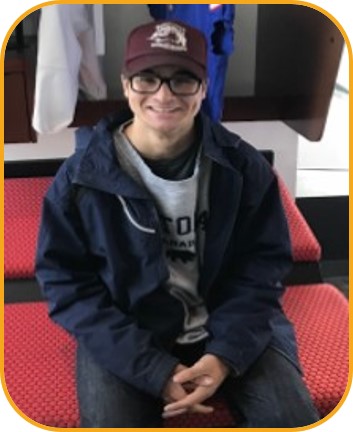|
Yakking with YACC Interview with Geoff Eaton Edited for brevity and clarity.Dalan: To start off, tell me a little about your cancer experience. Geoff: I was diagnosed six months after I graduated university. I was living in an apartment with some buddies. I had started my own business the year before and had shifted to full-time work which I was super excited about. I was sure I was invincible. The moment I was diagnosed, all those things had to change. I immediately went into the hospital for 38 days, I shut down my business and I moved back home with my parents. My whole life was redirected. That story plays out every day in Canada. Dalan: Could you tell me about the idea behind the creation of Young Adult Cancer Canada (YACC)? Geoff: The day after I started treatment, I spent a whole Saturday on the phone with family and friends answering the same questions over and over again, and I said to myself, “there’s gotta be a better way to do this.” This was back in 1998 when the internet was in its early stages. I had a laptop I bought for my business at the time, and I had my handy dad hook it up to the internet in the hospital. Using this, I started an email group to keep my family and friends updated on whatever was going on. By sending one email that they could all reply to, I was able to check on the responses whenever I had the energy. Unknowingly, that email group really was the start of YACC. Six months later, during my third round of chemo, I had this idea to start a charity that focused on talking to other people about cancer, to give them an insider look on what it’s actually like. So, the initial drive behind YACC was around sharing experiences and connecting with other young adults and this really evolved over the next two or three years into our mission around building a community. Dalan: How has YACC evolved over the years? Geoff: We launched our first web community in 2004 and as people got connected, they shared their stories, their highs and lows and their wisdoms with each other. The following year, we had our first retreat. That face-to-face event fostered deep, lifelong friendships, similar to what young cancer patients experience at camp. Then we saw the web community get more engaged, it grew and has been continuing to grow ever since. We offer a combination of different kinds of face-to-face programs and we have this 24/7 availability of web-based initiatives as well. Dalan: What resources/events are now open to pediatric cancer survivors? Is everything open or are there some restrictions? Geoff: We are still using a hybrid COVID programming model, so for the last three years we've been virtual. There are also local social events across the country, and one-day retreat-style events, which we call House Party. These are all available to pediatric cancer patients, the only criteria is that they need to be 18. The rationale behind the age restriction is first, legal parameters, and second is that at YACC, you can’t bring your parent. We made the parent guideline years ago as we felt that a lot of times survivors are more open and honest about the good and the bad when parents aren't around. We also have private Facebook groups and our public website hosts hundred of stories of survivors who have gone through all kinds of challenges. I find that there’s lots of content on the YACC website for people who are under 18. There's no age requirement. Dalan: Thanks for chatting with me Geoff. I've always said that once the physical fight with cancer is over, it evolves into a new kind of fight with cancer. Many of us face a lot of anxiety and depression. Post cancer, you're trying to figure out where you want to go in life, but at the same time you're trying to overcome a time that was so traumatic you don't know what to do. It helps to have a community like the one YACC has created to share stories and bounce ideas off of.
|
|
|
||
